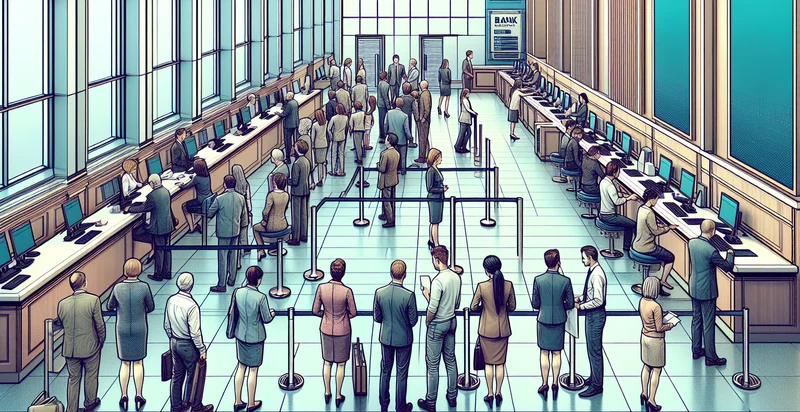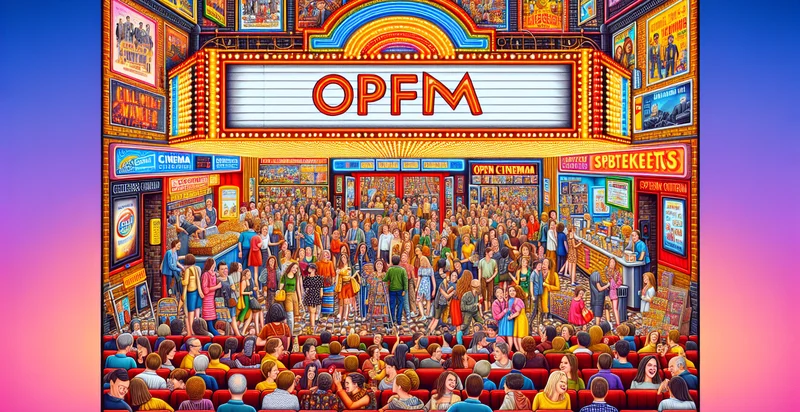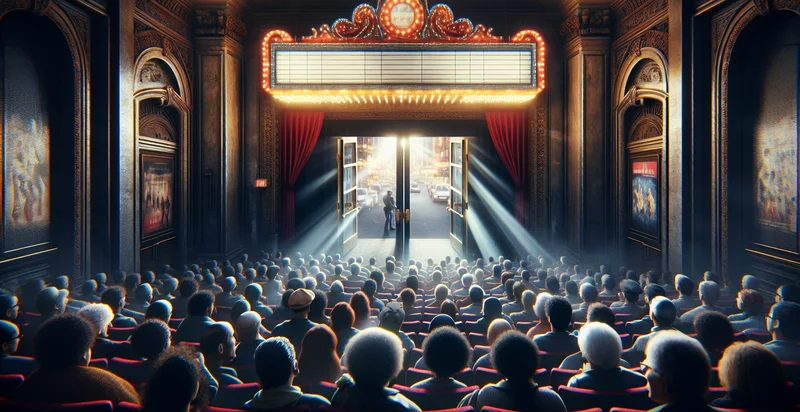Identify if theater is open
using AI
Below is a free classifier to identify if theater is open. Just upload your image, and our AI will predict if the theater is open - in just seconds.

Contact us for API access
Or, use Nyckel to build highly-accurate custom classifiers in just minutes. No PhD required.
Get started
import nyckel
credentials = nyckel.Credentials("YOUR_CLIENT_ID", "YOUR_CLIENT_SECRET")
nyckel.invoke("if-theater-is-open", "your_image_url", credentials)
fetch('https://www.nyckel.com/v1/functions/if-theater-is-open/invoke', {
method: 'POST',
headers: {
'Authorization': 'Bearer ' + 'YOUR_BEARER_TOKEN',
'Content-Type': 'application/json',
},
body: JSON.stringify(
{"data": "your_image_url"}
)
})
.then(response => response.json())
.then(data => console.log(data));
curl -X POST \
-H "Content-Type: application/json" \
-H "Authorization: Bearer YOUR_BEARER_TOKEN" \
-d '{"data": "your_image_url"}' \
https://www.nyckel.com/v1/functions/if-theater-is-open/invoke
How this classifier works
To start, upload your image. Our AI tool will then predict if the theater is open.
This pretrained image model uses a Nyckel-created dataset and has 2 labels, including Theater Closed and Theater Open.
We'll also show a confidence score (the higher the number, the more confident the AI model is around if the theater is open).
Whether you're just curious or building if theater is open detection into your application, we hope our classifier proves helpful.
Related Classifiers
Need to identify if theater is open at scale?
Get API or Zapier access to this classifier for free. It's perfect for:
- Theater Operations Optimization: This use case allows theater management to monitor whether their venues are open in real-time. By integrating an 'if theater is open' identifier, managers can optimize staff allocation, streamline ticket sales, and enhance customer service, ultimately improving operational efficiency.
- Dynamic Scheduling for Events: By identifying open theaters, promoters and event organizers can dynamically schedule performances based on availability. This facilitates a more efficient booking process, reducing conflicts and maximizing the use of available spaces for performances, workshops, and special events.
- Customer Experience Enhancement: An automated system can inform users whether a theater is open or closed, enhancing the customer experience. With real-time updates pushed to apps or websites, patrons can plan their visits accordingly, reducing frustration and improving satisfaction.
- Marketing Targeting and Promotions: Businesses can leverage the theater's open status to create targeted promotional campaigns. By knowing when theaters are open, marketing teams can time announcements and advertisements to drive ticket sales for days when the theater is operating.
- Safety and Compliance Monitoring: This use case facilitates compliance with local regulations regarding occupancy and shutdown periods. By integrating an 'if theater is open' function with a monitoring system, operators can ensure they adhere to safety standards and not operate during unsafe conditions.
- Data Analytics for Attendance Trends: Analyzing the open and closed status of theaters helps businesses gather data on attendance trends. By correlating this data with events and dates, management can make informed decisions about future scheduling and resource allocation.
- Third-Party Integration for Seamless Operations: This identifier can be integrated with third-party systems, such as booking platforms or customer relationship management tools. Ensuring that customers are aware of the theater's operating status across different platforms creates a seamless experience while minimizing conflicts in bookings.


